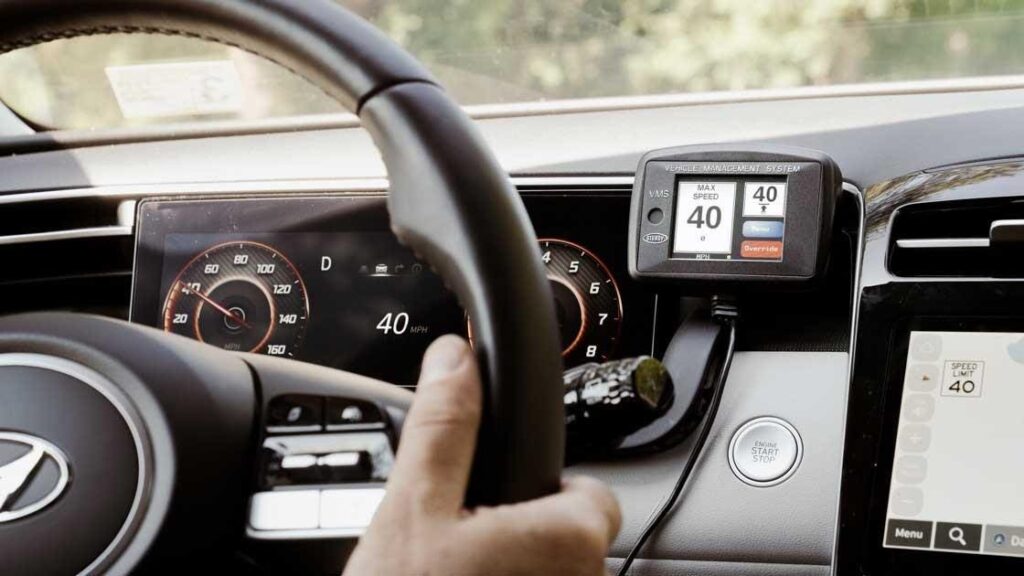Intelligent Speed Assistance (ISA) helps prevent you from speeding. … [+]
The majority of drivers (over 60%) said they would be open to having Intelligent Speed Assistance (ISA) in their car, a technology that alerts drivers when they are exceeding the speed limit, to help prevent them from doing so. Additionally, about half of drivers said they wouldn't mind vehicle technology that makes it harder to press the accelerator pedal or automatically limits their speed.
Those are the main findings of a new survey released Wednesday by the Insurance Institute for Highway Safety, an insurance-industry funded nonprofit, examining driver attitudes toward intelligent speed assistance.
“These survey results are intriguing because they show that American drivers are willing to change the way they drive to make our roads safer,” Insurance Institute President David Harkey said in a statement. “Conventional wisdom has traditionally held that speed-limiting technology is unacceptable in our car-centric culture.”
According to the researchers, speeding is consistently a factor in more than a quarter of all traffic fatalities in the U.S. In 2022, more than 12,000 people will die in speed-related crashes.
“With today's technology, we could prevent virtually all speeding and eliminate speeding tickets,” Ian Reagan, a senior research scientist at the Insurance Institute for Road Safety, who designed and conducted the study, said in a statement. “Yet we appear to be moving in the opposite direction, with things like adaptive cruise control and partially automated systems that can lock the speed at 90 mph if the driver so desires.”
According to the researchers, ISA systems use GPS and a speed limit database, sometimes combined with a camera that can read posted signs, to identify and adapt to speed limits. More robust systems sound or flash a warning if a driver exceeds the speed limit, or goes over it by a certain amount. Other systems make the accelerator pedal harder to press or limit engine power to discourage drivers from speeding.
Starting next month, the European Union will require all new cars to be equipped with ISA systems that provide at least an audio or visual warning, but drivers will be able to turn the system off, the researchers said.
The study found that any version of ISA that might be introduced in the U.S. would give drivers the choice to turn it off, so it would only be beneficial if the public could accept it.
In the survey, 1,802 drivers were divided into three groups: Those who preferred an advice system over a system that intervened to control the vehicle's speed.
Nearly 70% of drivers across all groups said they would want an ISA on their next car if insurers offered lower premiums based on evidence they hadn't been speeding.
Other findings from the survey:
- Frequent speeders are 20% less likely to accept an ISA than occasional or rare speeders, suggesting that those who need ISAs the most may be the ones using them the least.
- Overall, about half of drivers in two of the three groups said they frequently disable the feature.
- A federal mandate could help overcome resistance.
- Drivers were more likely to say they would accept ISA if most other vehicles had it. (Previous research has found that drivers worry that driving slowly will irritate other drivers.)
- Drivers may be more likely to accept anti-speed technology if enforcement is relaxed on interstates and freeways and stricter in school zones and areas with many pedestrians and cyclists.
“This technology allows for nuanced interventions that weren't possible before,” Harkey added. “The next challenge is to get automakers and drivers to adopt this technology and start saving lives.”
For more information on the survey, click here.

